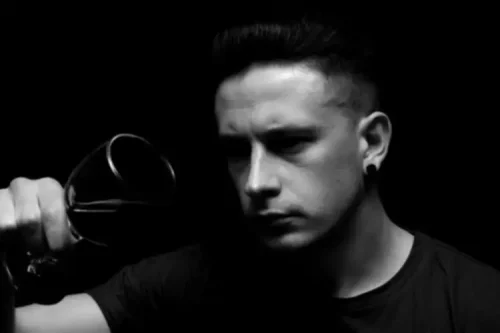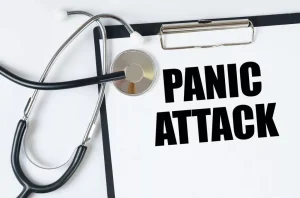
The authors suggest future studies investigating the effect of hormones on this connectivity. Think of it as retraining a muscle group for a specific type of physical exercise. Here are 5 simple and practical ways to get your brain back on track during recovery. The most common symptom of ALS is muscle weakness which often leads to paralysis and eventual death.
Manage Your Stress
This may be due to inflammation in the brain that affects how brain cells behave, according to NIH-supported research. Separately, researchers have found that more people with mild cognitive impairment (MCI), as opposed to those without, may develop Alzheimer’s disease or dementia, according to the National Institute alcohol brain fog on Aging. Roughly 10 to 20 percent of people 65 and older with MCI develop dementia over a yearlong period, however, studies underway aim to understand why some people with MCI progress to dementia and others don’t. If you’re trying to cope with drinking too much, talk with your healthcare professional.
How Does Alcohol Affect the Brain?
- Experts say some gradual decline in brain functioning is expected with age, so any mild memory loss symptoms must be considered in context with a person’s age.
- Additional tips include listening to music, practicing mindfulness exercises, and focusing on the positive as much as possible.
- Ethanol is a natural product that is formed from the fermentation of grains, fruits, and other sources of sugar.
- The researchers then applied the resulting model to MRI scans from almost 50,000 people participating in various studies of aging and neurological health.
- A little bit of stress is natural and can come from internal or external factors, including our physical environment, jobs, relationships, traffic, and unexpected events.
The most common symptoms include confusion, poor concentration, loss of muscle coordination, and loss of mental activity that often lead to coma and eventual death. If you are experiencing any of these symptoms, it is essential to speak to a medical professional. These deficiencies can lead to symptoms like fatigue, poor concentration, and irritability.
How long does it take for your brain to go back to normal after drinking?
Just like chocolate cake, your brain can easily get addicted to the rush of dopamine that comes with alcohol. Highly palatable sweet, fatty, and salty foods and alcohol are just some of the many things that produce an incredibly quick reward. Plus, we have such easy access to them, which is what makes them so addictive. Even two drinks a day can make a difference in brain size, but as always, the more you drink, the worse the effect. Dopamine is a neurotransmitter that works with the reward center of your brain, making you feel pleased, satisfied, and motivated.

Your experience should be similar, and you can always ask the staff at the treatment center if your challenges with thinking are normal. During early sobriety, areas such as quality sleep, good nutrition and even hydration status can still be impacted by our alcohol abuse (Kverno, 2021). These areas could be considered foundational pillars of good health, so addressing these factors could not only resolve brain fog but support long-term sobriety. During prolonged and excessive alcohol use, the damage inflicted upon brain cells becomes more severe.

The journey to recovery from alcohol addiction and brain fog can sometimes require additional support. Medication, such as Naltrexone and Acamprosate, can help reduce cravings and prevent relapse, offering a powerful tool in the fight against addiction. The duration of brain fog after quitting alcohol varies from person to person. Factors that can help your brain recover from brain fog faster include the length of time alcohol was consumed, the amount of alcohol consumed, and the individual’s overall health. Sometimes, brain fog may go away on its own within a few days or weeks after quitting drinking. This can be especially true for individuals who have not been drinking for an extended period or who have mild to moderate alcohol use disorder.
Alcohol Withdrawal and Brain Fog
These symptoms impact your daily life, and can increase your risk of relapse. Of course, Brain fog can also be a response to poor sleep or malnutrition, but funnily enough, these are also two major areas impacted by chronic alcohol abuse. Living an isolated life is not what the brain is meant https://ecosoberhouse.com/ to do,” says Wilhour. Disconnection can also contribute to depression, which can lead to brain fog, she says. One study on more than 66,000 people found that those who were most mentally fit had a combination of social connection and social engagement (versus just one or the other).
But someone can make a full recovery and start withdrawing from alcohol. The key is to practice a few different remedies and get help from licensed alcohol treatment counselors. Additional tips include listening to music, practicing mindfulness exercises, and focusing on the positive as much as possible.

Prioritising nutritional health is high up on the totem pole for sobriety, so if you were to pick anything, start here. The effects of alcohol on the brain vary depending on the dose and on individual factors, such as overall health. In general, the more alcohol a person drinks, the more likely it becomes that alcohol will damage the brain — both in the short and long term. This complication of long-term heavy drinking causes scarring of the liver.
Alcohol Addiction Treatment
That number increased to four or five years shorter for people who had 18 drinks or more per week. The researchers linked alcohol consumption to various types of cardiovascular problems, including stroke. The brain mediates our motivation to repeat behaviors that lead to pleasurable, rewarding states or reduce uncomfortable, distressing physical or emotional states. In this context, drinking alcohol can be motivated by its ability to provide both relief from aversive states and reward.